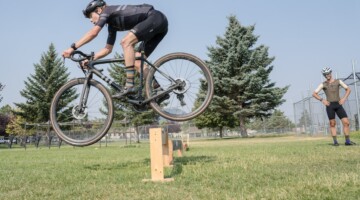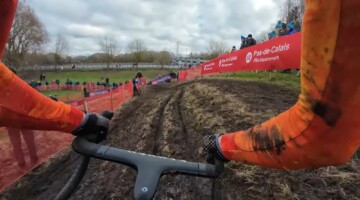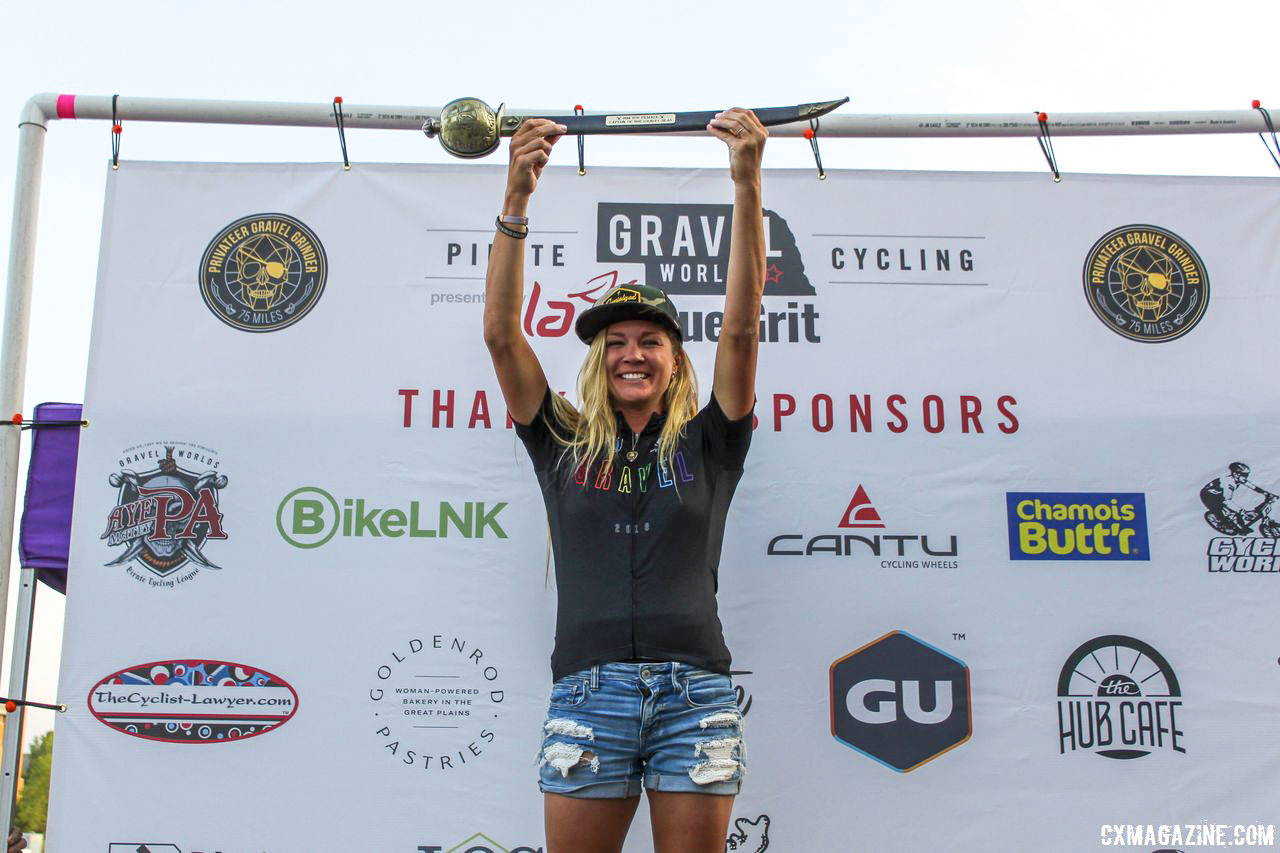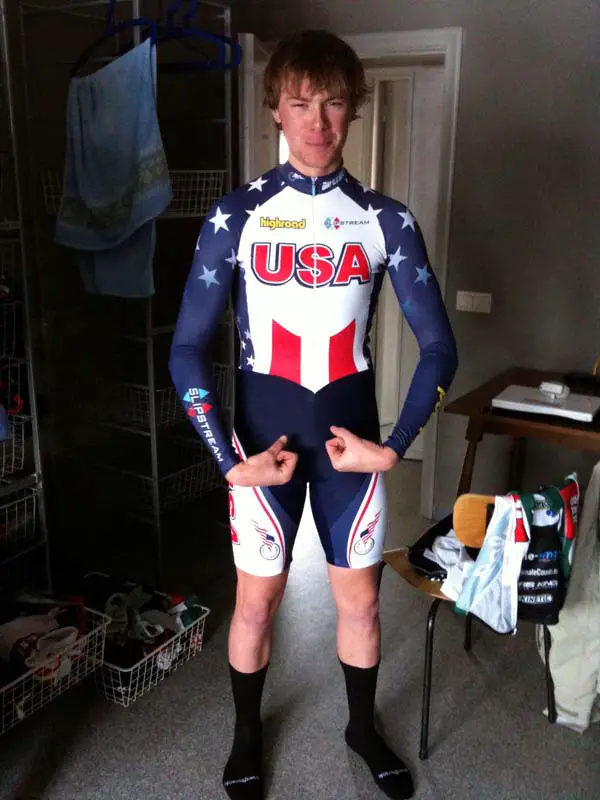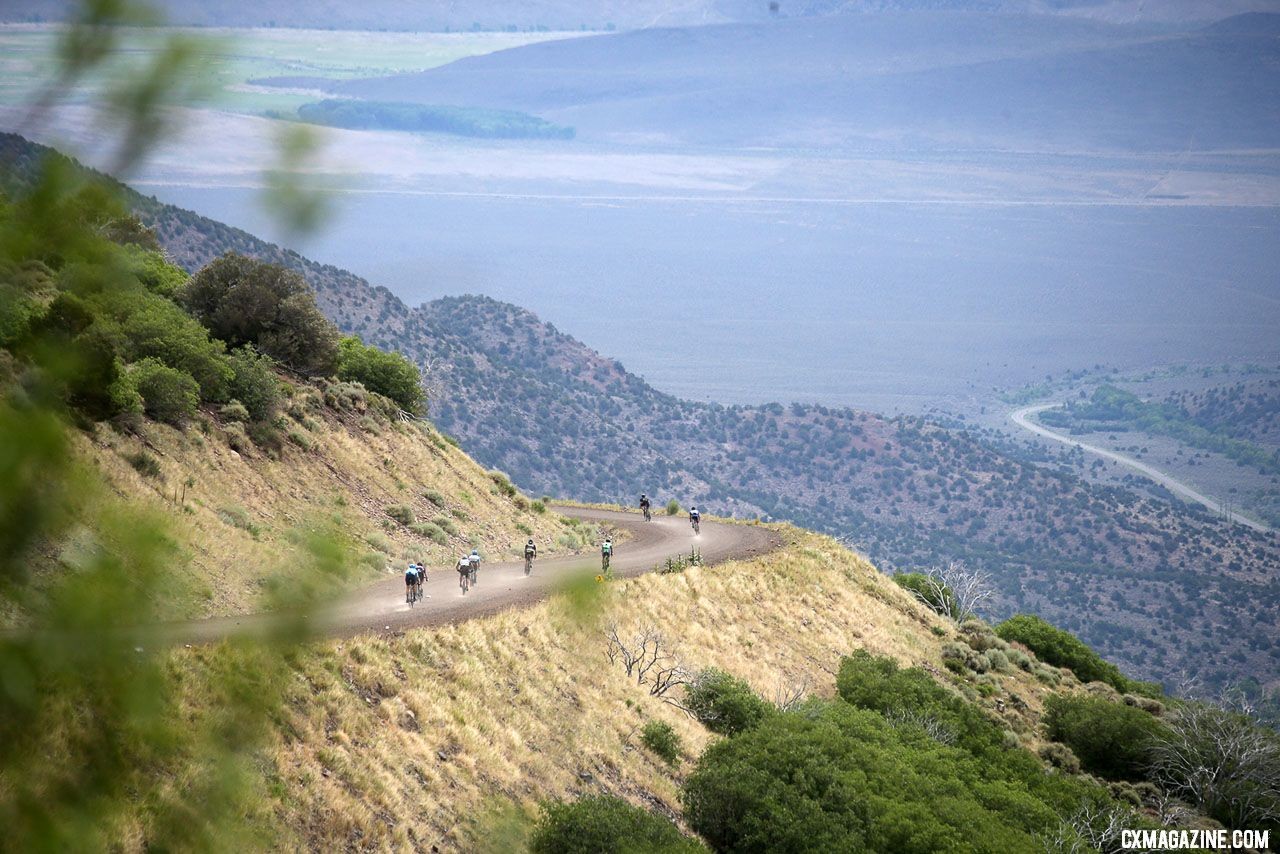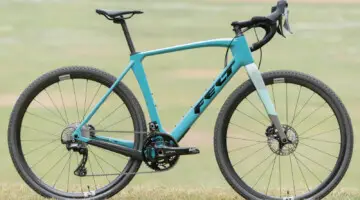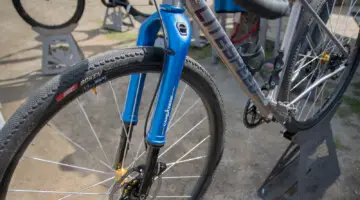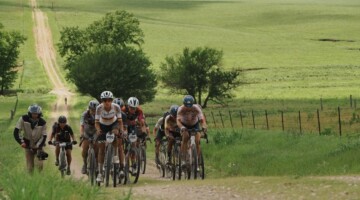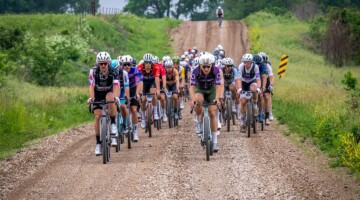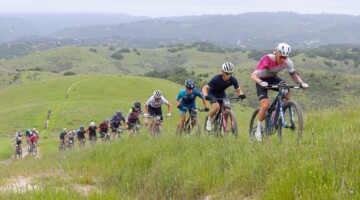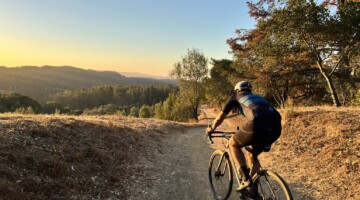“I want to give a shoutout to all these small-town promoters who are putting events on because they have sweet roads around them. That’s what awesome about it; it’s kind of a punk rock mantra—if you don’t have a scene, you just make one. Everyone’s doing that across the country. You could travel around the country racing gravel every weekend.” – Corey Godfrey
Debates about what is punk rock these days aside, Godfrey nailed it when it comes to gravel events in the U.S. Gravel events abound in locations across the country and every year, new ones continue to pop up.
Got some great local roads? Invite folks over, draw a route on a map and throw a sweet post-race party. Simples.
A fun aspect of gravel is since it is still a growing discipline, it attracts riders from across the disciplines. Just this year, we have seen a WorldTour roadie, cyclocrosser, pro mountain biker and gravel specialist win the two biggest races we have covered. With gravel growing in popularity and prestige, we are also seeing more riders like Nina Laughlin who specialize in gravel racing and travel across the country to do so.
There are a number of gravel nomads who are making their mark on the gravel scene by putting in big miles in the van and big miles on the unpaved roads. With so many gravel events out there, we rounded up a few to ask them for their gravel event superlatives.
Our panel for this Ask the Gravel Pros includes (we are going alphabetically by first name here):
Alison Tetrick
2017 Dirty Kanza 200 winner, 2017 and 2018 Gravel Worlds winner, gravel pirate
Amanda Nauman
2015 and 2016 Dirty Kanza 200 winner, Land Run 100 winner, surprising resemblance to a panda
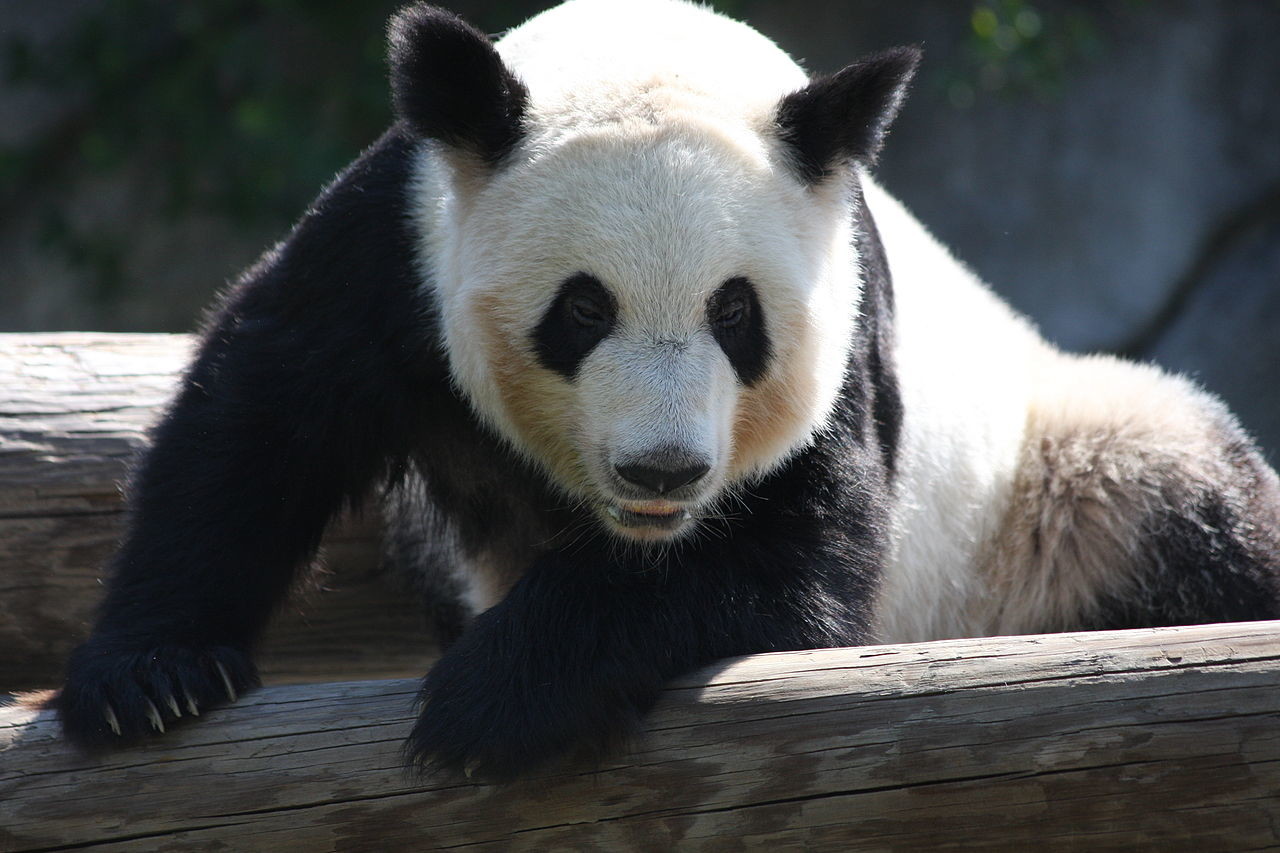
File photo: Amanda Nauman. photo: Magnus Manske, used under a Creative Commons license
Corey Godfrey
2010 Dirty Kanza winner, Gravel Worlds co-race director, cornbread liker
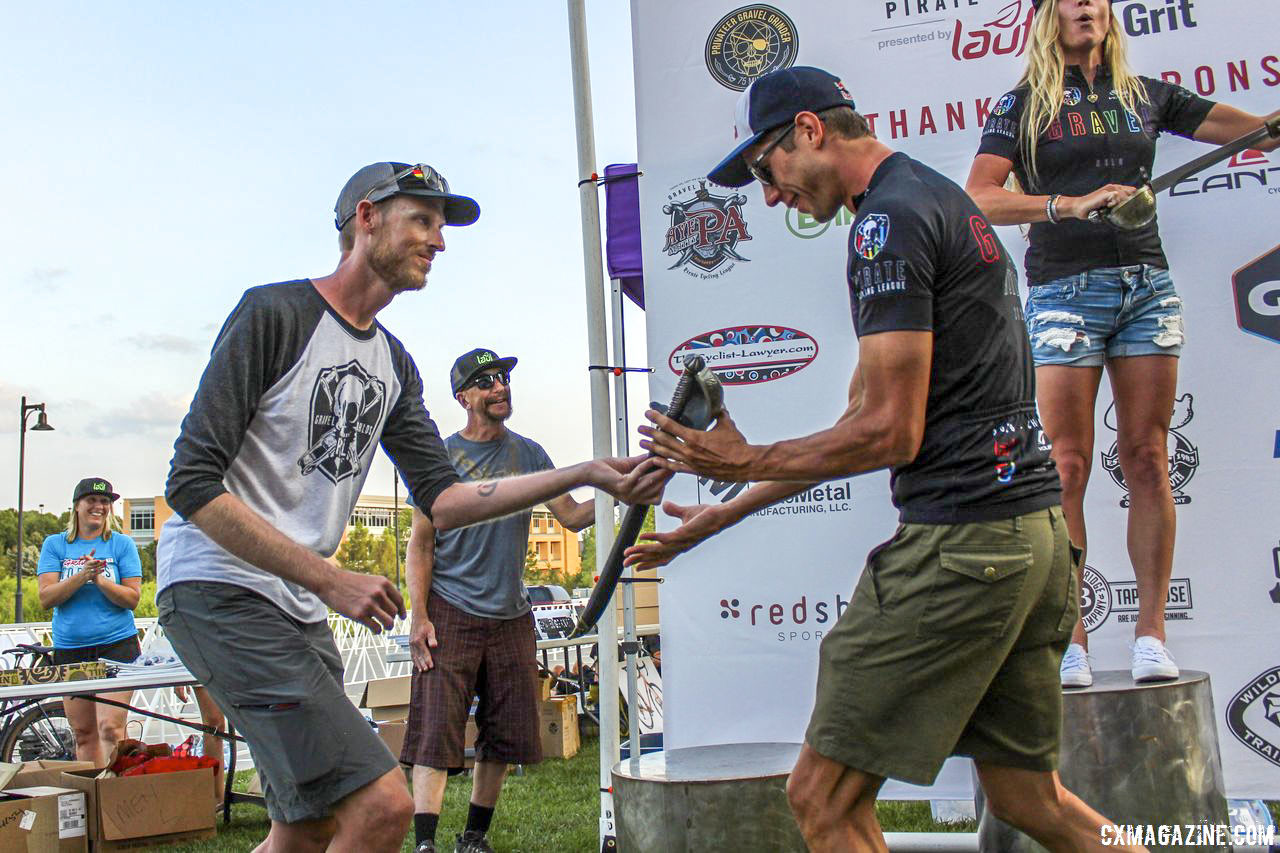
Corey Godfrey is the Gravel Worlds co-race director. 2018 Gravel Worlds © Z. Schuster / Cyclocross Magazine
Josh Berry
2018 Dirty Kanza silver-medalist, Gravel Worlds podium finisher, dude:
Kae Takeshita
Dirty Kanza top 5 finisher, 2019 Barry-Roubaix winner, 2019 Land Run 100 silver medalist, possessor of many talents
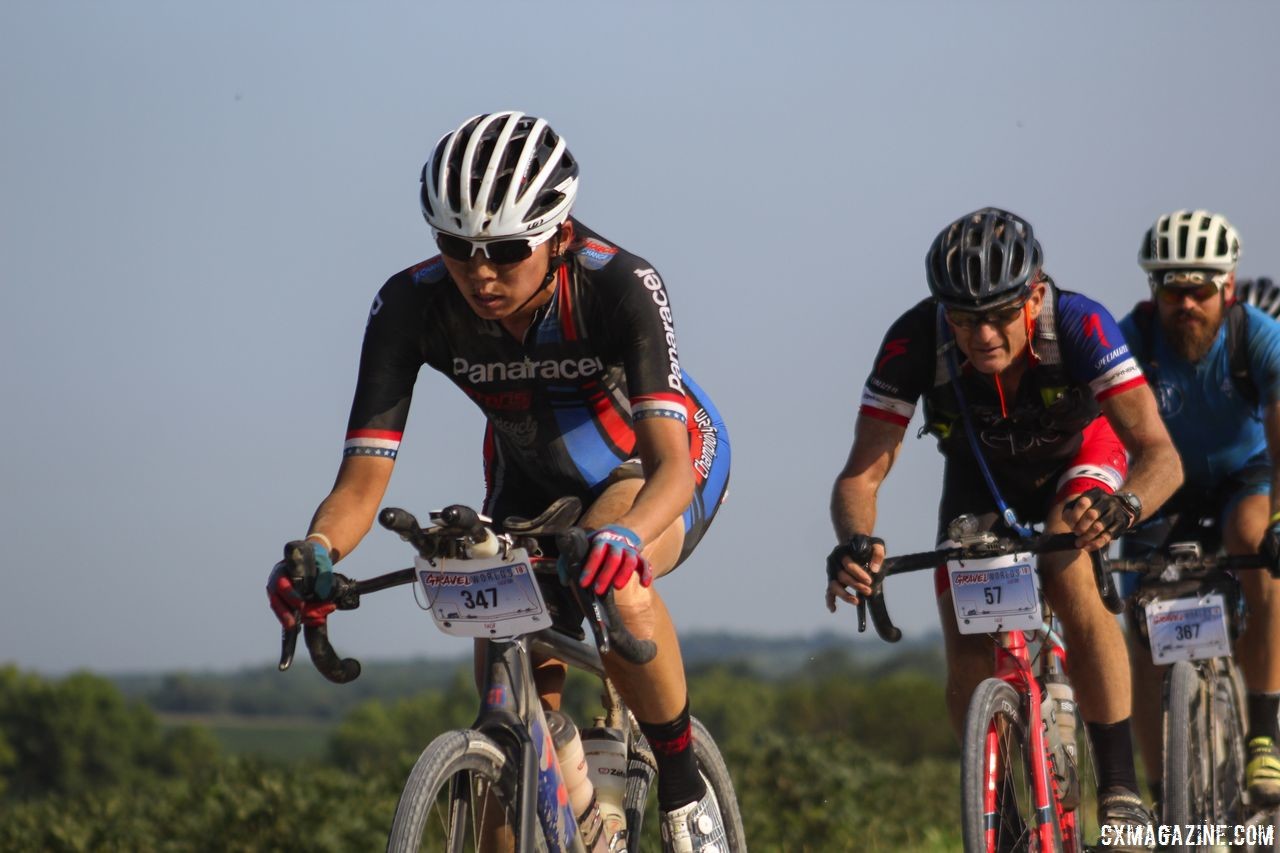
Kae Takeshita flies on gravel roads and literally knows how to fly. 2018 Gravel Worlds © Z. Schuster / Cyclocross Magazine
Ask the Gravel Pros: Gravel Event Superlatives
Cyclocross Magazine: Favorite gravel event?
Alison Tetrick: How do you pick your favorite gravel event? They are all so different. I think the best part about gravel that no stone is the same. You can’t make me pick a favorite. I have too many. Each event I have gone to is unique and special in its own way that offers challenges and community and fun.
Amanda Nauman: The granddaddy, Dirty Kanza.
Corey Godfrey: That’s a tough one. I’m really partial to this new event in Nebraska that starts and finishes north of Lincoln. It’s called the Bohemian Sto Mil. “Sto” is 100 in Bohemian and “mil” is mile. A couple of my friends are putting it on. It’s very similar to how Gravel Worlds started. Free, postcard entry, they do really cool stuff at checkpoints. It’s kind of my new favorite event. It’s really challenging heading into the Bohemian Alps.
Josh Berry: Dirty Kanza! I was forced onto the plane last year, I was dreading going out there. Thankfully I showed up to a new friend and Ted and Laura King to hang out with. We were there early and that place has some awesome people. The energy is unreal; it is intoxicating,
I got so excited to just go see how deep I take my body into it’s darkest place. Welcomed with an early rain storm to clean the air, I was blown away when it cleared to open beautiful prairie and dual track into the sun rising through the purple dawn.
The horses galloped next to us as I fought to become one with the environment. I let the wind be my friend, I turned off all of my metrics that day and just let my mind run. I laughed, joked, attached, panicked, felt the world push me and subsequently crush me.
I finished with thousands of other new friends all with smiling faces. Beers were handed around as our own war stories were shared of our battle together with the endless support of the community. The people make this race something truly spectacular. Get over the 200 mile thing, it didn’t feel that long.
Kae Takeshita: I can’t really choose one! There are so many fun events out there. Big or small. High profile, low key, or totally grassroots. Races or fun rides. Chip timing or hand-written number on a piece of cardboard or none. All graveling is good! There are very many I have not done but I enjoyed all I have participated in.
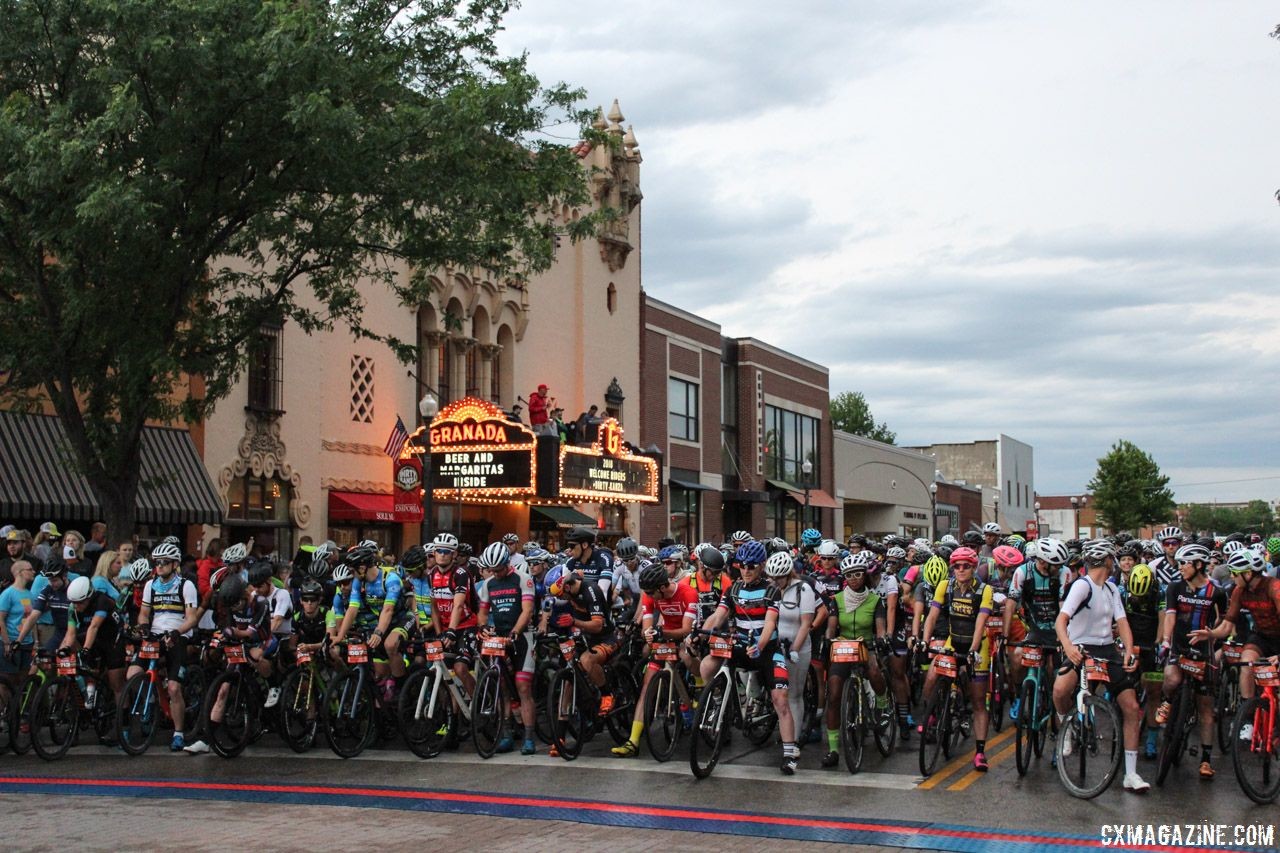
The granddaddy of them all got two voters from the panel.. 2018 Dirty Kanza 200. © Z. Schuster / Cyclocross Magazine
Cyclocross Magazine: Hardest gravel event you’ve done?
Alison Tetrick: Every time I am doing an event and if I am going as hard as I can, I always think it is the hardest day of my life. Then, you know the feeling, you finish the ride, you are raising your glass with your friends in celebration and you just feel satisfied.
When we are out there suffering with our gravel party crew, we are questioning our life choices and why the hell we signed up for this. It is so hard! If you are pushing your limits, and challenging yourself, it is hard. Isn’t it supposed to be? It never gets easier, and it is always a challenge. But isn’t that why we do it?
Of course the DK200 has the distance and conditions that make it exceptionally grueling. But even at much shorter events like the Crusher in the Tushar, I wouldn’t want that course one mile longer. I was convinced I was going the way of the Sundance Kid and it wasn’t pretty.
I don’t think we should be intimidated by what is the hardest thing to do, but more what event inspires you to get out there on your bike and prepare to get better and challenge yourself. Where will you find the most joy in completing and where do you want to visit and see all the sights and eat and drink and be merry?
Amanda Nauman: Any of the events at altitude like Crusher in the Tushar. The most intimidating are the events over 300 miles like DKXL though, because of the sleep deprivation factor.
Corey Godfrey: TransIowa and the DKXL are tough. They’re both basically 350 miles. I did 11 TransIowas, but I think I only finished 5 of them. A couple of those were rain-shortened. Just the multi-day gravel events are so tough. DKXL was super hot and humid. For TransIowa we had snow, rain. I got hypothermic three times and had to drop out. Those are just nutty man. It’s a different level of nutty.
Josh Berry: Crusher in the Tushar. It’s the shortest one too. But the climb just keeps coming and coming, It will rain, it will be hot, it will be windy, and that is just on the first climb.
Everyone is faster and skinnier than you on the first. Thankfully the second climb lasts only about forever, and I can catch the struggling minds as I finish a few beers on my way to the finish. I did well once, that might be all I have.
Kae Takeshita: Each event has its own uniqueness and challenges, it’s difficult for me to compare which one is harder because they are all so complementing to their region. It’s true that a longer event involves more planning and preparation, and it does take longer to finish. That does not necessarily mean it’s harder just because of the distance, though. Elements such as weather and course conditions make things harder.
The wet and cold, say 35-45 degrees F, combination is harder on the body than sunny and dry and 20 degrees F combination. Once there was a race where I was ambulanced to a hospital ER after falling unconscious within a couple of miles from the finish due to acute hypothermia. Another close call again due to rain and in low 40s, where I wasn’t quite sure if I could even make it from the finish line to the parking lot. I had to be assisted to my car because I was shivering so badly. Hypothermia is a serious condition, your mind doesn’t realize your body is shutting down.
Years ago, in one of the races I did in early March, when the pavement ended it was not gravel on the ground but frozen thick solid ice. I did not have studded tires and I just ran what we had at that time (32mm cyclocross tires). And we were not going slow. Pretty scary! Just go straight and do not turn the wheel!
And other indirect factors are always out there. Stress and fatigue from work and other life events are something I believe everyone can relate to. Just getting to the races can be a long travel by air or ground and quite exhausting. The foods out of town especially in a rural area can be another issue. I recently had a really bad stomachache during a race weekend and kept me up all night. When possible, I bring my own food to eat instead of eating out.
Cyclocross Magazine: Underrated or hidden gem of a gravel race?
Alison Tetrick: If I tell you that event, will it make it too popular? Will it become overrated? There are two events that I was able to compete in last year that I thought were truly special: Chino Grinder and unPAved PA.
I really like attending events that I can get close to the pulse of the community, have less stress and indulge in new sights and roads. Chino Hills takes you through the foothills of Sedona and offers a challenging yet very safe course. It is a perfect time of year to enjoy Arizona, and also offered me new vistas and terrain that I never imagined I would be able to visit.
unPAved takes you through Amish Country and into the most amazing and secluded mountains in Susquehanna River Valley. I had a spectacular time and was inspired by not only the people I was surrounded with, but also the untouched terrain that offered so much history and depth. It didn’t hurt that I won a Whoopie Pie medal, which I promptly consumed.
Amanda Nauman: Rock Cobbler in Bakersfield, CA. This was the first gravel event I ever did and described it as a really long ‘cross race when I finished it. It’s got a local, grassroots vibe that I have always loved about these style of events, and I highly recommend the trip out to Bakersfield for it.
Corey Godfrey: There’s another local event called the Solstice. It’s usually right around the Summer Solstice. It’s a 100-miler that’s very grassroots and fun. It starts and finishes in Malcolm, which is a town we usually go through for Gravel Worlds. I’m a big fan of that one.
Just in general, if you look at the calendar of gravel races, I want to give a shoutout to all these small-town promoters who are putting events on because they have sweet roads around them. That’s what awesome about it; it’s kind of a punk rock mantra, if you don’t have a scene, you just make one. Everyone’s doing that across the country. You could travel around the country racing gravel every weekend. And fairly cheaply too.
Josh Berry: Ruta Del Jefe. Camping in some of the most beautiful lands and sending it on a multi-day bike packing ride in one day is a blast. Huge environment changes, huge climbs, super smooth white sandy roads, big rock to jump off all while supporting great causes and getting two camping nights (before and after) with the best food and best people. I don’t want to tell you much more because I’d like it to stay small.
Kae Takeshita: I believe this event now has another name and formats are different, but an unsupported race I did in Upper Peninsula of Michigan in 2016 was a very memorable one for me. It started in Marquette, Michigan, which borders Lake Superior. It’s the one I had an encounter with a fully grown male moose when I was going through the woods alone.
While browsing the internet during lunch at work one Friday, I happened to discover this low-key, free 150-mile event. It was only two days away. I was intrigued immediately, sent some messages to the event host to find out more details as I was not familiar with the area at all. After a group ride on Saturday morning, my husband and I packed up and drove 380 miles north for the Sunday adventure. As we drove north, the temperature dropped, and the scenery and the type of trees drastically changed.
Everyone else was on their mountain bike or fat bike, and I was the only one with a cyclocross bike with drop handlebars. My husband rode an old mountain bike with 26” wheels but I did not have a choice. It was either that or my road bike. Back then, there really weren’t many selections of gravel-specific wide tires and I was on 32mm tires. The event director did warn me saying, “Oh my, 160 miles on the CX bike will take being hardcore to another level.”
Until this day, I personally still have not ridden my bike in any remoter place than that area. “Very few people explore this area and only a handful live out there part of the year,” I was informed by the event organizer.
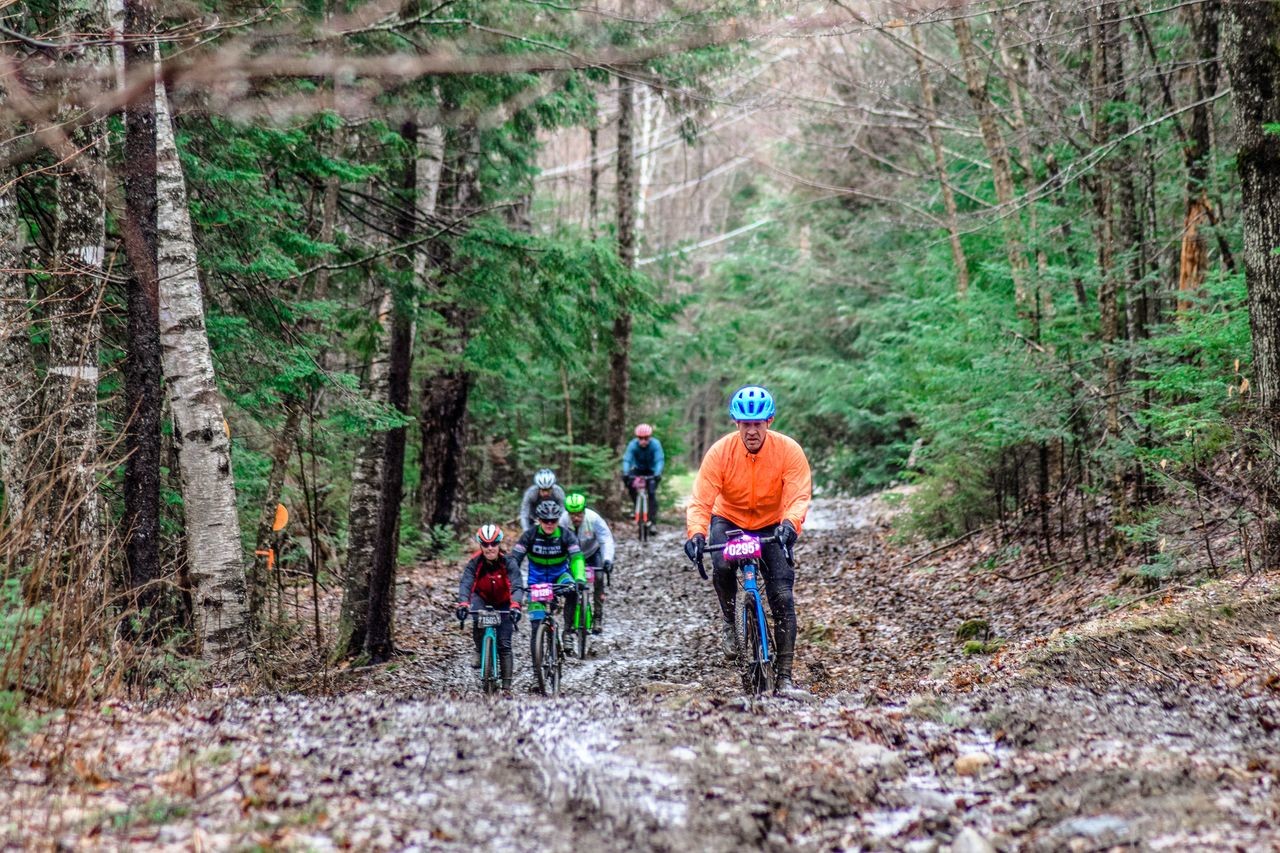
Hidden gems exist across the country. You may have to head to Cyberia to find some, however. 2019 Rasputitsa Gravel Race, Vermont. © Nolan Myers
Cyclocross Magazine: Top bucket list gravel event?
Alison Tetrick: I am excited to go to The Rift in Iceland this summer. I have never been to Iceland, so what greater excuse than to go ride gravel bikes there. And well, I did go on a bike packing trip in Kyrgyzstan once. Bikes are a vessel for all bucket list items. Adventure time.
Amanda Nauman: For everyone? I think everyone needs to get to Kansas for Dirty Kanza at least once in their life for any of the available distances.
For me? Rebecca’s Private Idaho. I’ve never been able to do it based on proximity to ‘cross season, but this might be the year I make it over!
Corey Godfrey: I think I’ve done them all. I guess there’s some out there I don’t know about that I want to try. Maybe that one down in Florida would be pretty sweet.
I am going to Iceland to do The Rift. That’s on my current bucket list. It’s 200k, and I guess it’s around a volcano. If you look at the profile, the first half you’re climbing and the second half is descending. I guess you have to cross some glacial melt rivers. It will be pretty fun.
Josh Berry: This year I am most excited to do the Oregon Trail Stage Race, It’s a first-year event in likely my favorite place, The Cascades. Fully supported, point to point days, camping gear transferred for you and many awesome Oregon beer wine and food producers there to provide the after party. I hope the cell service is sparse, the camaraderie is high, and the courses are wild. I have no doubt it will be the best event of the year.
Also, Grinduro Japan! I really hope I can figure out how to afford to get out there for this new event.
Kae Takeshita: There are more and more out there so I can’t name a specific one, but I’d like to go ride many more regions I have not visited yet.
I get myself fridge magnets for the states where I’ve ridden or raced my bike. There are many states I have not gotten a chance to visit or have visited for work or pleasure but not with a bike.
Cyclocross Magazine: What makes a good gravel event? What makes a great gravel event?
Alison Tetrick: Community. Make it fun. Make it a party. Remove the stress. Create an adventure. Make it safe.
I love gravel events because I can explore and express myself. After a long road racing career at the highest levels, I have to check in with myself when competing in gravel to make sure I am having fun and enjoying the adventure. I am willing to choose my health and safety over any result. I want to be able to take myself less seriously and lower the pressure in my life and tires. I want to have the option of carrying a flask in my pocket and eat bacon at a rest stop.
I think what makes a good event great is the ability to unite all levels of cyclists to enjoy life on two wheels and celebrate the battle of the day after the event. We are all in this together. Make it a gravel party. Don’t be lame. Cheers to gravel, let’s keep making great.
Amanda Nauman: A good gravel event has an excellent, memorable course. This would likely include incredible views, very little pavement, chunky gravel, glorious dirt, and challenging conditions.
A great gravel event has an excellent course, amazing people, and inviting atmosphere. It’s the people and the vibe that make an event great.
Corey Godfrey: Meeting new people during the gravel events while sharing miles pedaling toward a common goal of finishing an event. I’ve met some amazing people over the years while riding gravel. I may only see them once or twice a year, but there’s definitely a bond.
Interacting with locals and volunteers is also something I really enjoy. The landscape and terrain are a really enjoyable feature of the gravels events, but so are the local inhabitants of the land. Most folks are very welcoming and enjoy learning about where you’re from and why you’re riding on gravel.
Josh Berry: A podium. A win. … Half kidding.
The people! Dirty Kanza, Rebecca’s Private Idaho, Crusher, Belgian Waffle Ride are created by genuinely awesome people I have been lucky enough to know. Each of them surrounds themselves awesome people and the energy vortex is created.
They find some challenging yet safe and supportable courses. They know the event is not about the silly people marketing it as a race but the 99.9 percent of people that are there to have fun.
A good gravel event is a challenging vacation.
A great gravel event is a challenging vacation with all of the parties.
Kae Takeshita: A challenging course with various features, showcasing what the local riders are proud about their playground and the area’s cultures and history. Course previews are always nice to have, safety remarks and markings for possible hazards if necessary. Also, I like it if the start time is not very early, but it’s necessary for some events.
Racing itself is the main event of the day, but hanging out and socializing with friends and their family, volunteers and race promoters and sponsors after the race is a ton of fun, and I always look forward to it! When the race day schedule and venue are set up so everyone can stay and enjoy each other, I think it makes it really great.
Familiar faces from my current home Chicago and Illinois, friends who also have traveled far, my Panaracer/Factor p/b Bicycle X-Change team members who I don’t get to see often (we are all from different states) and all friends I made throughout the past several cycling years. It’s like a reunion and also an opportunity to make new friends, so I really value and cherish the social time afterward.

